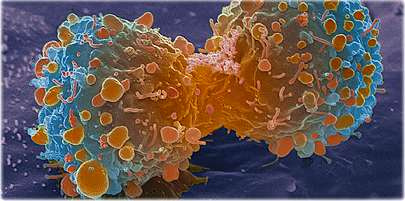An article recently appeared in Science investigates the correlation between the frequency of tumours (all, indistinctively) and the number of stem cell divisions. The correlation, the authors of the article say, is very strong. This is potentially very significant and informative, except that, unfortunately, only a very small proportion of the variation in cancer risks can be attributed to environmental factors or inherited predisposition. The rest – which is a big chunk to explain – is due to bad luck. I refer the reader to a clear article by Paolo Vineis, where he expresses doubts about the methodology of the paper.
But this is not the point I want to reflect on. I am instead most interested in the explicit use of the term ‘bad luck’, which occurs both in the text of the authors and in the editor’s comment accompanying the article. Needless to say, this is the only aspect that the media picked up (just google ‘bad luck cancer’ and you will realise how much this is resonating).
There is a lot that we don’t know about cancer (and about many other phenomena). But is it ‘bad luck’ if we get ill and we don’t have a cause to blame? Is everything we are unable to explain today due to chance? What kind of message do we convey to the public in this way? The issue is of course delicate, because we find – at the other end – another extreme position: scientism. And surely we don’t want to fall on that side either. While it is intellectually honest to say that we don’t know something, it is misleading to call it bad luck. In the case of cancer, the message can be devastating. If bad luck plays a major role in cancer development, why bothering with prevention and with screening? (This doesn’t imply, however, that all preventive actions are sound or effective, or that screening programmes always lead to correct identification of cases of cancer.)
Also, what the article labels as ‘bad luck’ may be in fact due to factors that have not been thoroughly explored, for instance socio-economic or behavioural factors. I’m not talking about reducing the ‘social’ part of disease to some allegedly objective, bio-chemical element. I’m really talking about understanding the lifeworld of individuals, which includes health and disease.
In sum, ‘bad luck’ is really a bad choice for a scientific article, not just because it shows epistemological clumsiness, but also because it may have quite undesirable consequences on the public understanding of science and on people’s behaviour.
